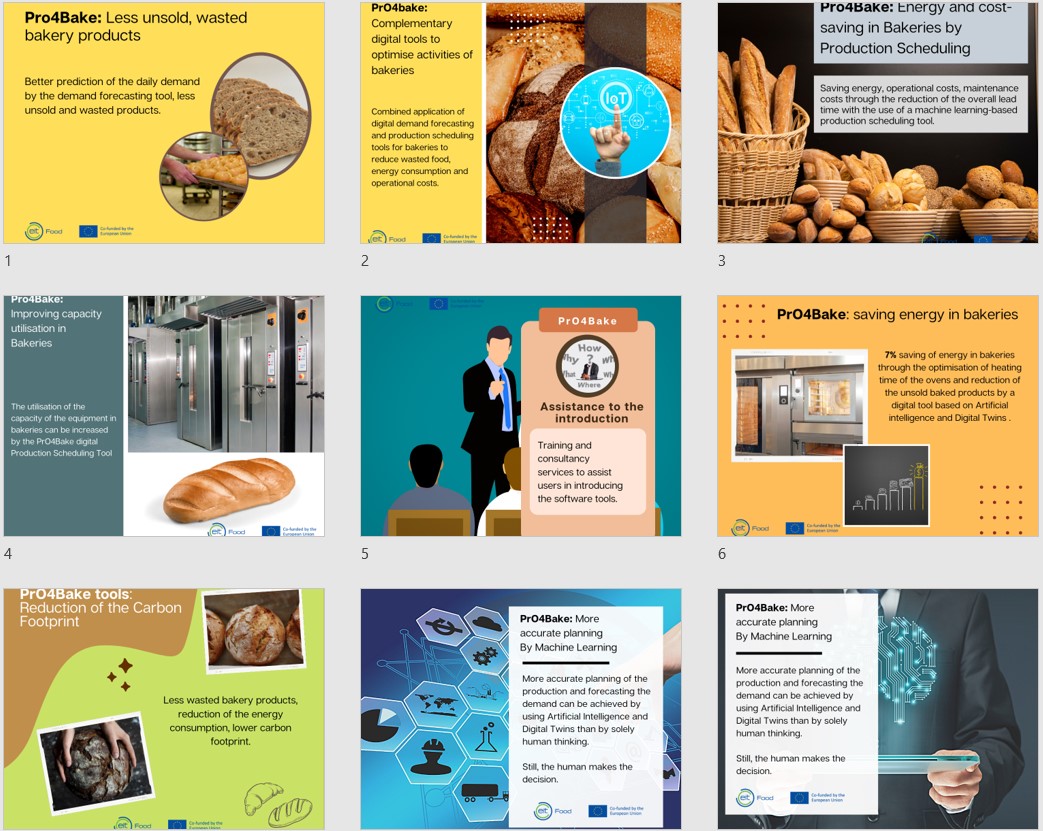Closed projects:
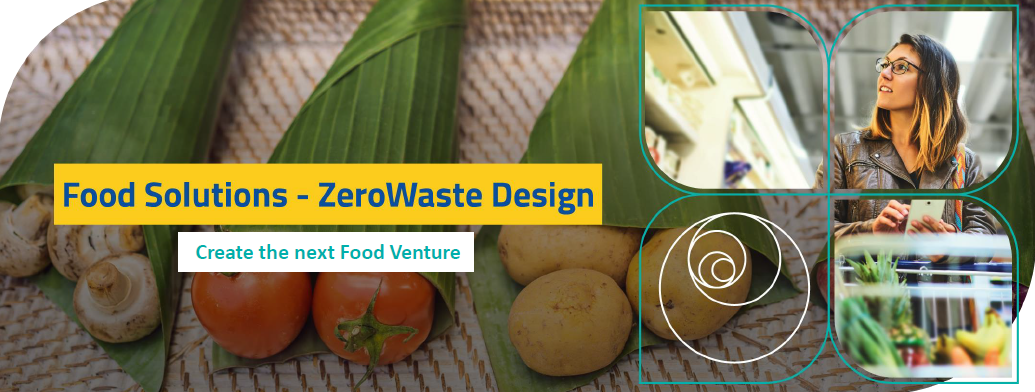

EIT FOOD SOLUTIONS PROGRAM 2024 - ZeroWaste Design
The EIT Food Solutions Program is waiting for YOU in 2024!
If you are a Bachelor, Master or PhD student from one of the Hungarian Universities with a passion for food, innovation and entrepreneurship, you are welcome to join us!
New year, new challenges:
This year the focus is on reducing food and packaging waste.
„ZeroWaste Design: Reducing food and packaging waste for sustainable supply chains systems”
To reduce waste, food and packaging need to be considered together, and we need new innovative solutions with a holistic focus on Circularity and sustainability:
Reduction and/or replacement of food packaging and/or new packaging solution
Circular food systems with reduced package and food waste
New re-use structures

The Program structure:
Between March and November 2024, being part of a 3-4-5 members team, you are participating in a case competition between different European Universities working on the ecological and environmentally conscious design of food packaging, reducing their negative impact on the environment and the food industry (eco-design).
When you join, you will benefit from entrepreneurship and product development education to produce an innovative, tangible food solution.
During the year you can participate in the ONLINE meetings, and at the end of the Program, you are welcome to join a Final Conference abroad where the top 3 teams have a chance to win financial prizes..
Detailed information can be found on the flyer HERE.
Food Solution official website:https://www.eitfood.eu/projects/food-solutions
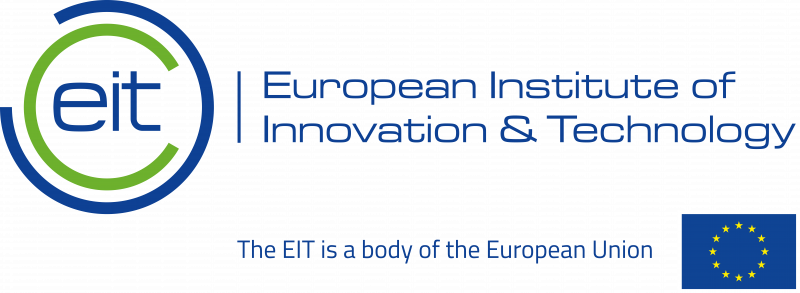
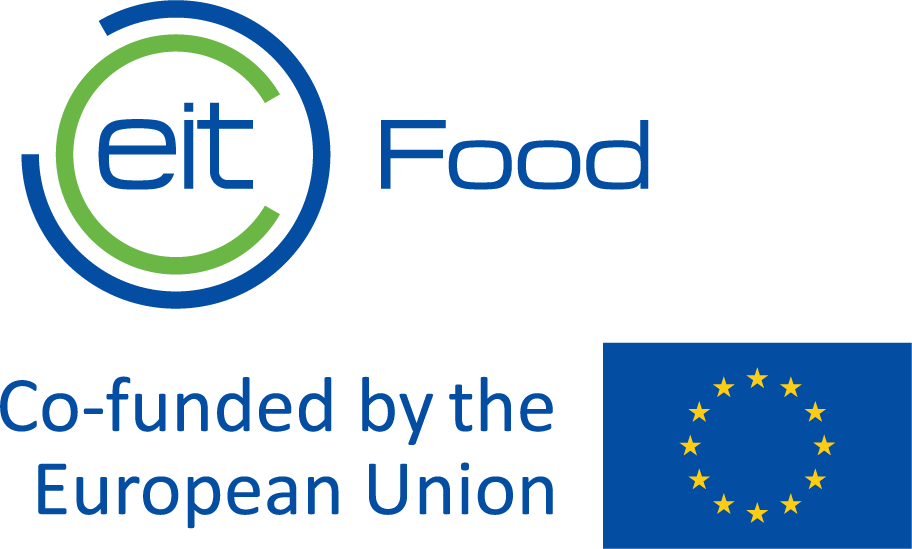
EIT Food – Consumer Engagement Labs
Co-creation of new food products with consumers 65+
RIS Consumer Engagement Labs are pre-competitive co-creation sessions carried out by a coherent group of consumers (selected based on specific segmentation criteria) in a joint place and limited in time, focused on ideation and development of new product concepts.
Unlike typical sensory panels and consumer surveys, the Labs do not involve testing of sample products but the creation of innovative, non-yet-existing combinations of product features and benefits.
15 new food products introduced to the market by June 2021
Short presentation of the Consumer Engagement Labs: RIS CEL presentation
More info on the website of EIT Food – Consumer Engagement Labs: https://www.eitfood.eu/projects/ris-consumer-engagement-labs
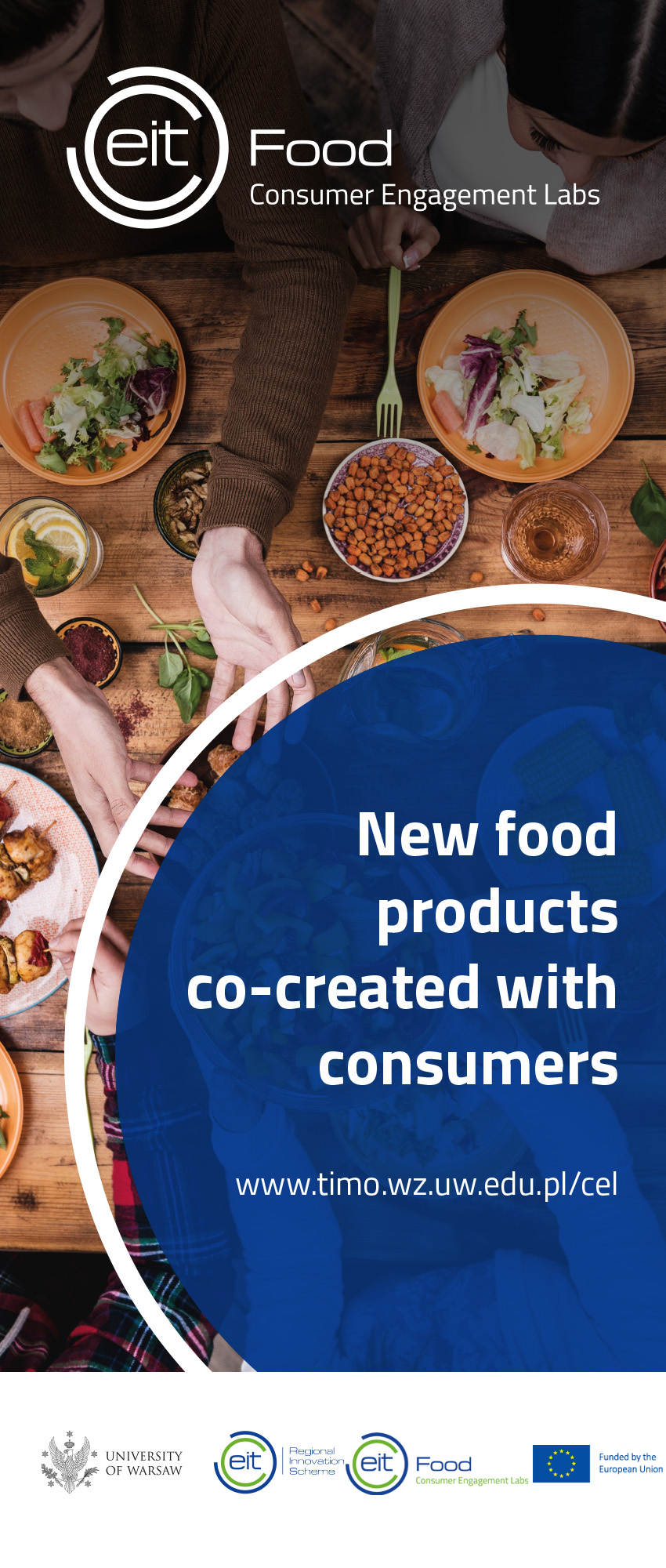
Further information:
Dr. Adrienn Hegyi
Tel: +36 1 433 14 84
E-mail: adrienn.hegyi@campdenbri.co.uk
Tünde Kuti
Tel: +36 1 433 14 71
E-mail: tunde.kuti@campdenbri.co.uk

Prevention of DIABetes with OLEanolic Acid (PREDIABOLE)
Aim of the project::
Olive oil production generates a high volume of waste, as is the case of the olive leaf during the cleaning operations of the fruit in the oil mill. In addition, this activity is a serious problem in the food industry in the southern European RIS countries, where the world’s largest oil production is concentrated.
Olive leaf is characterised by its high bioactive compounds can be recovered. It is important to highlight the presence of a triterpenic acid, oleanolic acid (OA), which has been proven anit-diabetic activity when incorporated in therapeutic doses in human nutrition. In this direction, the main objective of the project is to use oleanolic acid from olive leaves considered as an olive mill waste and use it as a valuable substance to develop a new food based on OA-enriched extra-virgin olive oil, which acts as a functional and sustainable product capable of modulating human health through diet. The influence of OA enriched extra virgin olive oil on the prevention of type 2 diabetes mellitus has been demonstrated in previous in previous clinical trials, carried out between 2010- 2018 by the CSIC research body and researchers from the Andalusian Health Service (SA), which resulted patent (EUROPEAN Patent EP18382510) that it is currently licensed by Acesur.
CBHU’s activities related to the legal aspects of its labelling and consumer studies on sensory claims.
Partners involved:: ACESUR (Spain), CBHU (Hungary), University of Warsaw (Poland)
Founded by: EIT (European Institute of Innovation & Technology) Food
Duration: 2022 -2023
Web Site:
Related services:
Further information:

FutureEUAqua
(Future growth in sustainable, resilient and climate friendly organic and conventional European aquaculture)
The overall objective of FutureEUAqua is to effectively promote sustainable growth of resilient to climate changes, environmentally friendly organic and conventional aquaculture of major fish species and low trophic level organisms in Europe, to meet future challenges with respect to the growing consumer demand for high quality, nutritious and responsibly produced food.
FutureEUAqua follows the whole value chain from egg to fork including
genetic selection of certain species (primary focus is on salmon, seabass, seabream and rainbow trout),
the development of innovative ingredients and feeds,
the application of non-invasive monitoring technologies to look at the impact of housing environments and innovative diets on fish health and welfare,
the development of innovative fish products and packaging methods,
the development of optimal production systems.
The project operates a Stakeholder Platform in order to create a common platform for the experts of the area to discuss the latest developments of sustainable aquaculture.
Financed by: Horizon 2020

Project Coordinator: Åsa Maria O. Espmark
Project duration: 01.11.2018-31.10.2022.
Website: www.futureeuaqua.eu
Twitter: @futureeuaqua

GLOPACK
The GLOPACK (Granting society with LOw environmental impact innovative PACKaging) project is investigating food packaging with no environmental footprint and the ability to extend the shelf life of food products.
The project is focusing on three food packaging areas:
biodegradable materials made from agro-food residues
active packaging to improve food preservation and shelf life without additives
RFID enabled wireless food spoilage indicators linked to food date labels
As part of the GLOPACK concept a decision-supporting tool will be developed to help designing and communicating eco-innovative packaging alternatives to all end-users.
GLOPACK project also has a Stakeholders’ Platform where the members
have early access the GLOPACK results,
can meet other stakeholders,
can connect to people in their own field of work,
can discuss the issues related to sustainable and biodegradable food packaging with peers,
can explain their needs for new packaging solutions and the pre-requisites of their practical applications in your work.
The project has received funding from the European Union’s Horizon 2020 research and innovation programme under grant agreement No 773375.
What were objectives of GLOPACK H2020 project?
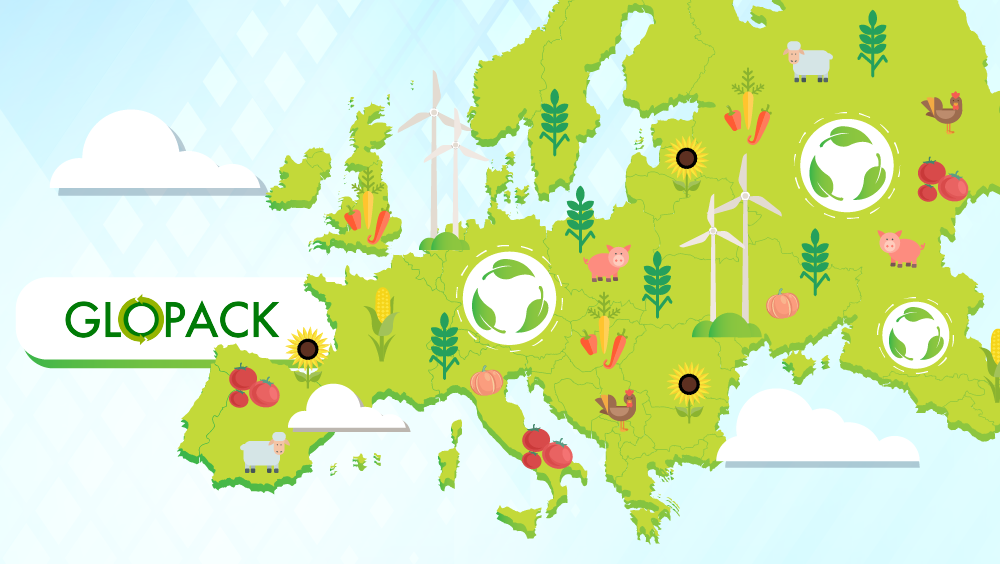
The GLOPACK “bio-circular” food packaging
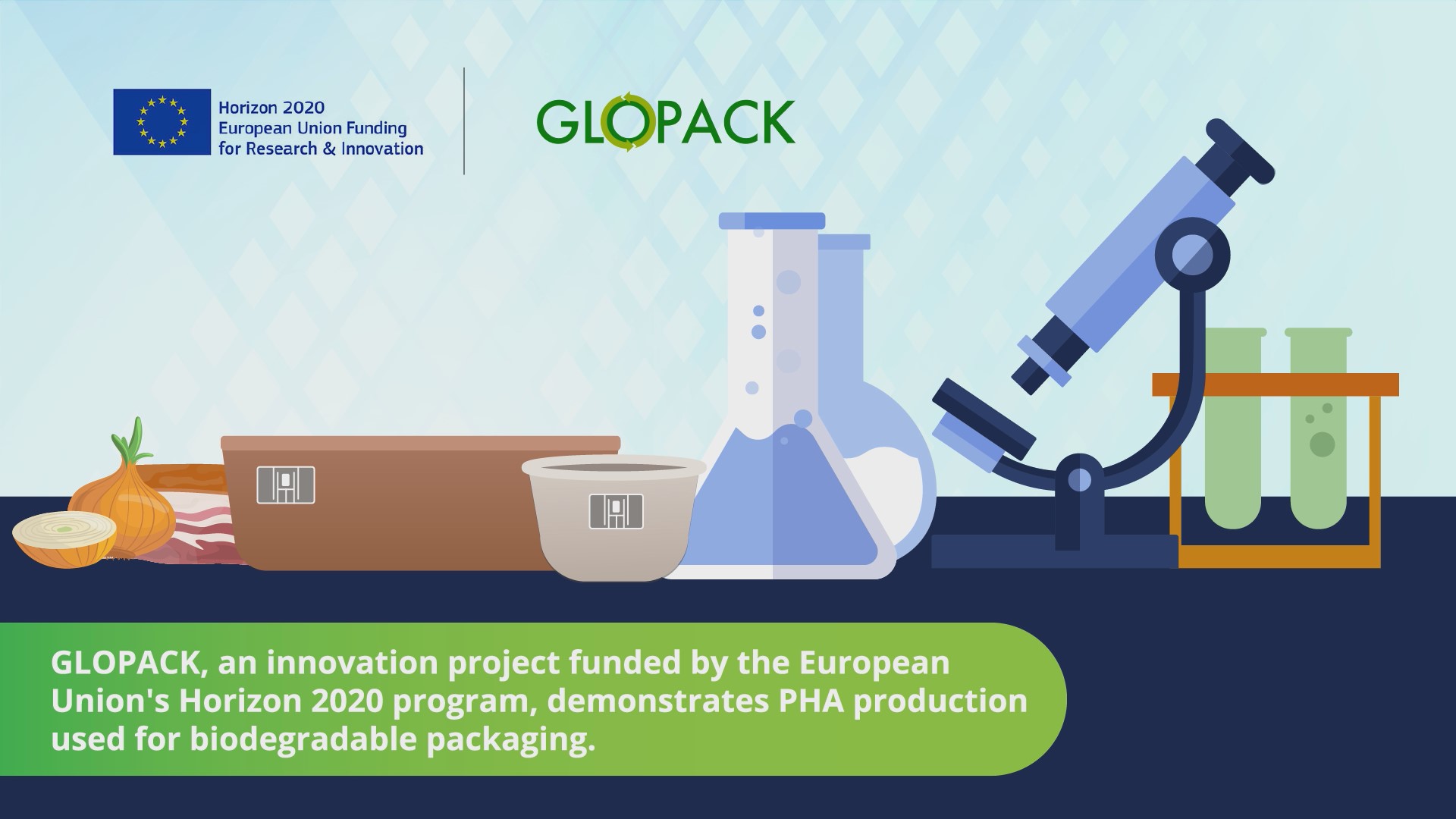
The GLOPACK “bio-circular” biopolymer:
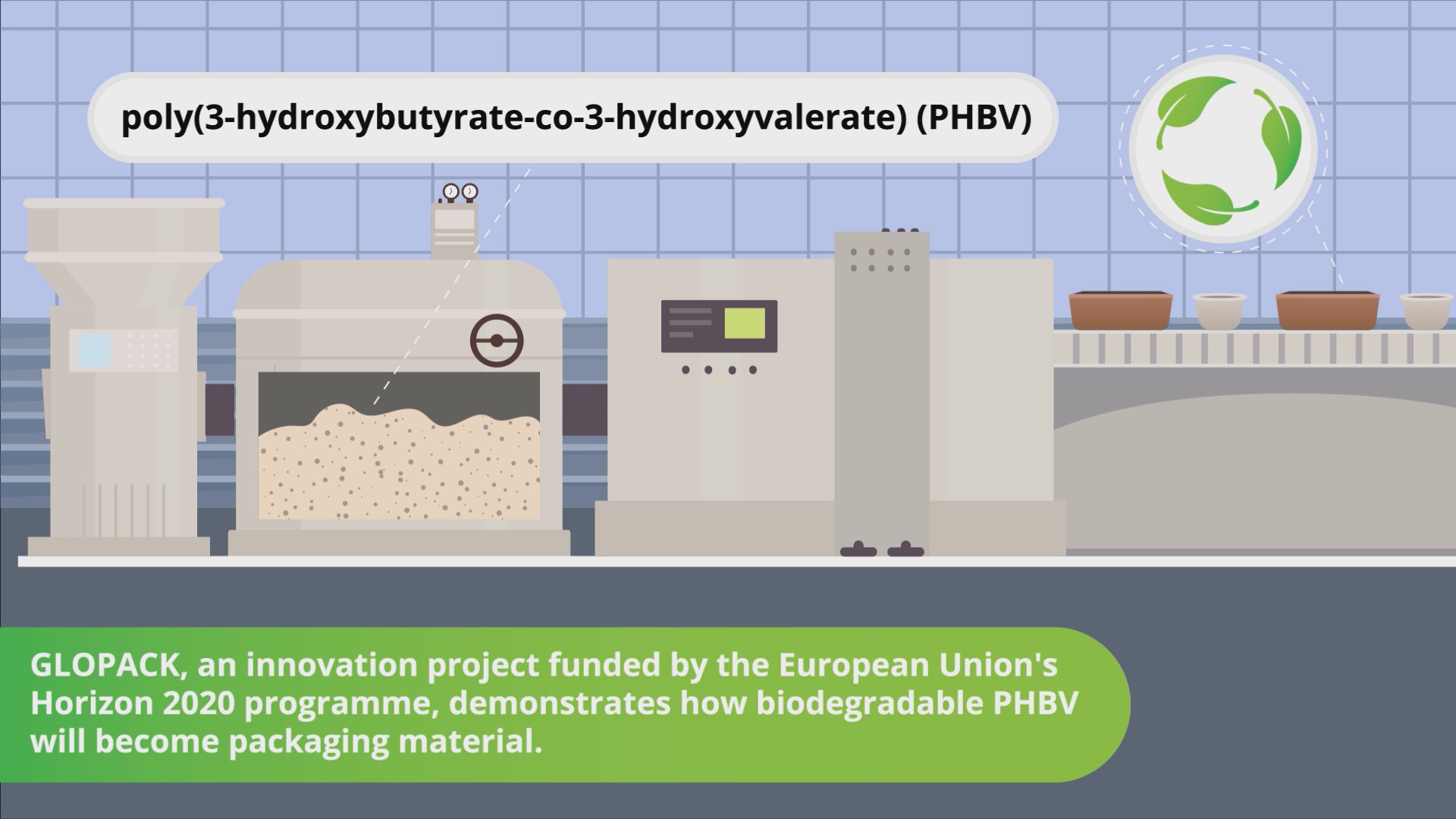
The GLOPACK active and intelligent packaging:
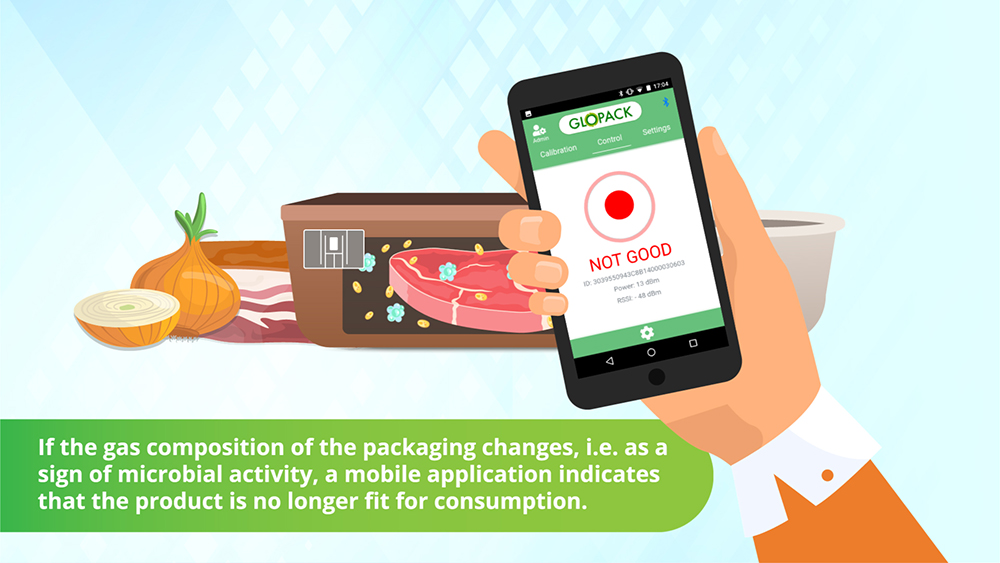
Financed by: Horizon 2020

Project Coordinator: Valérie Guillard, Université de Montpellier
Project duration: 06.2018-05.2021


Circular based alternative protein extraction from grape seeds (PROSEED)
Aim of the project::
PROSEED aims at valorising wine industry side-stream as grape seeds to obtain alternative protein for food& beverages industry.
PROSEED goal is to test and bring to the market one circular-based environmentally friendly and economically sustainable new protein product.
Grape seed protein can be used as fining agent of additive in several application to replace raw material currently used such as gelatine of animal origin characterized by a large environmental footprint or protein extracts from food crops like pea or potato characterized by ethic conflicts with food production and by allergen limits related to the gluten content.
Grape seed’s protein can broadly increase the alternative protein demand in the European Community considering the acute feed protein deficit in EU.
Nowadays, Europe suffers a 70% deficit in crude protein and imports annually around 15 million tons of crude protein from South and North Americas.
Campden BRI Hungary will set up and organize co-creation workshops with the potential users and consumers.
Partners involved:: Caviro (Italy), Caviro Extra (Italy), INALCA, UNITO (Italy), CAMPDEN BRI Hungary, MAGFI (Malta)
Founded by: EIT (European Institute of Innovation & Technology) Food
Duration: 2022 -2024
Web Site:
Related services:
Further information:

SMAF – Smart Agriculture Farming
The project that can help the farmers to adapt the digital solutions in the agriculture and food sector.
The implementation period of the Project: 2023
Purpose of the project:
The modern agriculture and food industry have to face lots of challenges nowadays, such as: growing and widening demand, environmental exposure caused by the climate change, compliance for the law of environmental protection, creating an attractive and profitable sectoral vision, to produce healthy and safety food, etc..
Nowadays in Hungary generation change is going on in the agriculture sector what gives us the chance to make digitalisation as a basic element of the producing. We believe that the digitalisation is the only available way to give answers and efficient solutions to the challenges that the agriculture and food sector is facing day by day. Digitalisation is playing an increasingly important role in agriculture which helps to spread the data-driven smart solutions. Through these technical innovations the farmers have reliable and precise forecast data and data about their production that can help to reduce and optimize costs and risks, to enlarge incomes and to ensure and produce safe and healthy food overall.
The SMAF project aims to give information in a wide range about the useful and available digital solutions which can be an answer to the different challenges that facing the agriculture and food industry not just technically but as an organization management problem as well. These solutions can be decisive in the life of a company to reach higher yields and profit, sustainable goals. We believe that it has spill over effect not only on a company, but on national economy sectors as well.
The SMAF project could be created by the co-funding of the EIT Food.
Through SMAF project there is an opportunity for the audience to get useful and exact knowledge and information that can help them to develop important skills such as: entrepreneurship, problem solving, communication and leadership and can help in critical thinking and analysing as well.
Campden BRI Hungary Nonprofit Ltd. as an EIT Food Partner and as the Hungarian EIT Food Hub plays an outlined role to communicate the aims of the EIT Food. Through the SMAF project there are several events and conferences where the participants are able to get all the important information and knowledge about the agricultural digitalisation. The SMAF project provides to keep in touch with the stakeholders, to stay up to date on the needs of the food chain actors, to communicate the innovations and to create an efficient communication platform between the parties.
Detailed information about the events organized as a part of the SMAF project are under the „News” button.
The webpage of the project:
For further information please contact one of our colleagues:
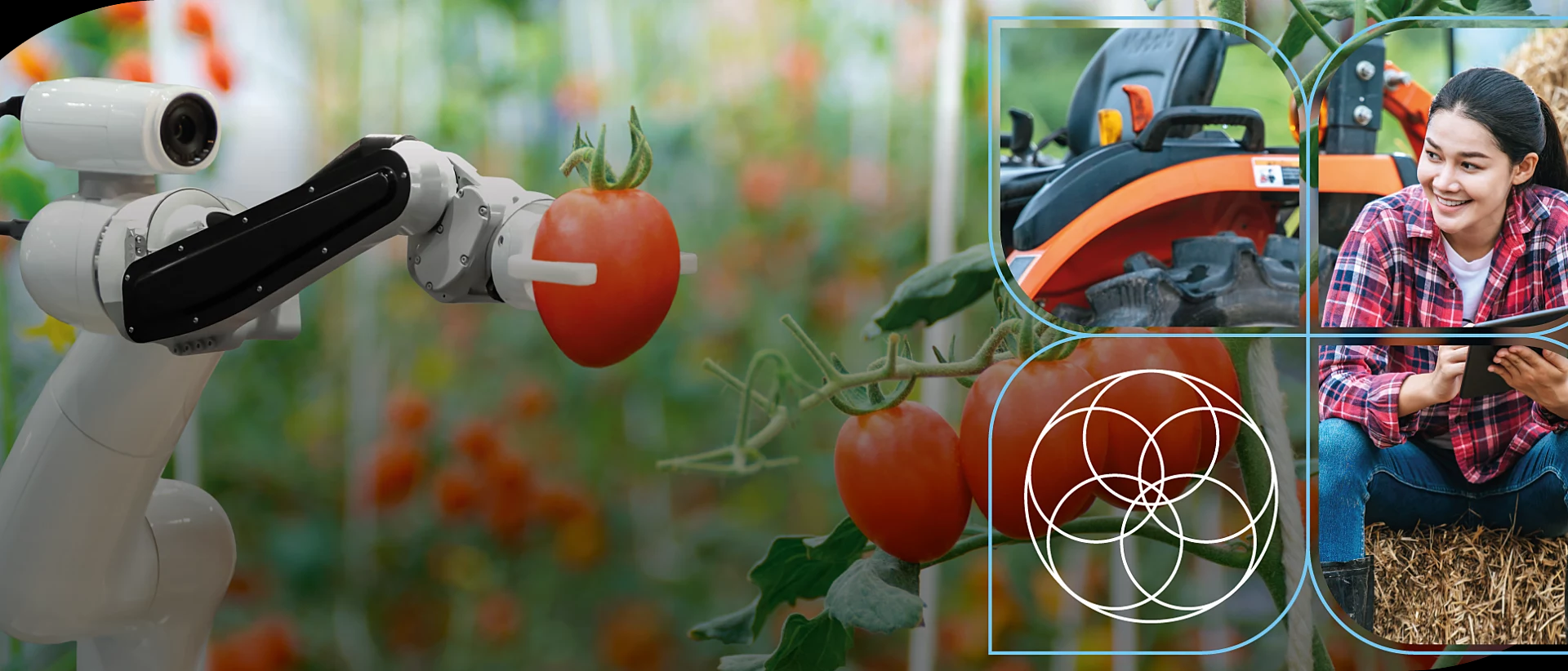

PrO4Bake
Optimization of bakery processes by a computational tool together with consumer feedback to minimize ecological footprint and food waste
This project aims to optimize processes in the baking industry with computer models to minimize food waste, energy consumption and CO2 emission. The proposed solution reduces energy and raw material consumption by optimizing the various production steps, and also improves production planning by forecasting demand.
By doing so, food waste, energy consumption and production costs can be reduced, thereby supporting small and medium-sized enterprises of the European bakery industry.
Experts in bakery technology, computer technology and food production will develop a tool by assessing consumer needs and analyzing production data to improve the competitiveness of modern and traditional European bakeries in the digital age.
Articles:
World Bakers Magazine (Page 24): https://www.worldbakers.com/magazine/2021-29-1-174-ewir234ujoer4ewr/
Blog on the website of Campden BRI UK:): https://www.campdenbri.co.uk/blogs/reducing-bakery-waste.php
Interview in EuroShop Magazine (Germany): https://mag.euroshop.de/en/2021/06/energy-management-producing-the-exact-number-of-baked-goods-needed/
Videos:
The link to a short pitch prepared for the EIT Innovators Award: https://www.youtube.com/watch?v=FI71zctI3D0
A short video created by the University of Hohenheim: https://www.youtube.com/watch?v=haHO18axJjE
Benefits for the users of the PrO4Bake computational tool:clikk here to download
Customer communication cards
Financial support: EIT Food
Project period: January 2020 – December 2021 (extended to May 2022)
PrO4Bake on EIT Food:
https://www.eitfood.eu/innovation/projects/optimization-of-bakery-processes-by-a-computational-tool-together-with-consumer-feedback-to-minimize-ecological-footprint-and-food-waste-2020
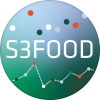
S3FOOD Project Grant Agreement No: 824769
‘Smart Sensor Systems for Food Safety, Quality Control and Resource Efficiency in the Food Processing Industry’
Thirteen European partners have come together in the S3FOOD project with an aim to improve the efficiency and sustainability of the EU food industry by enabling Small and Medium-sized Enterprises (SMEs) to adopt digital technology.
The tasks of the project:
Through S3FOOD, the partners will have a specific focus on facilitating and accelerating the use of smart sensor systems for improved quality control, better resource efficiency and a higher level of food safety and traceability – all important steps towards solving central challenges of SMEs in the agri-food system.
Establishing interdisciplinary working groups to assess food industry needs and possible solution services.
Enabling the gathering of appropriate digital data through Integration of IoT (Internet of Things) and related sensor technologies with the introduction of intelligent sensor systems.
Providing training and coaching for food processor SMEs in the field of data collection and data management.
SMEs will be invited on study visits to living labs and frontrunner companies, where they can see smart sensors in action, and to attend matchmaking events for finding relevant partners.
Financing program: H2020/INNOSUP

Project period: May 2019 – April 2022(extended to Sept 2022)
Website: www.s3food.eu
Twitter account: @s3food_eu


EIT Food Solutions:
DIG-IT program
DIG-IT program
Competition and mentoring program for university student teams. The topi cof the competition is to develop an innovative idea to solve a real food industrial challenge by using the tools of digitalisation.
Campden BRI Hungary serve as mentors and industrial partners to support the teams.
Project website:
Related services

NOAW: No Agricultural-Waste:
Innovative approaches to turn agricultural waste into ecological and economic assets
About NoAW:
NoAW is a European Horizon 2020 research and development project, running from 2016 to 2020, which aims to contribute to a “zero-waste economy” – an increasingly crucial issue in today’s society.
The international NoAW team aims to develop models of circular economy in which the valorisation of agricultural wastes, with special focus on wine biomass, straw and manure, are optimized on a territorial and seasonal scale. Through this approach the resources are kept in use for as long as possible to extract the maximum value from them.
The NoAW project will bring about solutions for policy makers and enterprises to transform todays agro-waste to tomorrow’s additional value:
- Create sustainable agro-waste bio-refinery concepts,
- Use integrative approaches, where special consideration is given to environmental impacts of the product and process even in design phase,
- Provide innovative and robust tools for the development of waste-resource recovery strategies and minimizing the negative impacts on water, air, soil.
NoAW explores the potential of agro-waste to be converted into a portfolio of eco-efficient products which are produced using fewer resources and creating less pollution. The main focus is on bio-energy, bio-fertilizers, bio-packaging and bio-molecules.
NoAW also considers environmental and human safety risks which can emerge from circular management of agro-wastes.
Financed by: The project has received funding from the European Union´s Horizon 2020 research and innovation programme under the grant agreement No 688338
Financed by: Horizon 2020

Project Coordinator: INRA, Prof. Nathalie Gontard
Duration: 10.2016 – 09.2020
Website: http://www.noaw2020.eu
Twitter: @noaw2020
Linkedin: https://www.linkedin.com/groups/13507644
Project summaries:
- Midterm leaflet:NOAW LEAFLET ENGLISH
- NoAW mid-term results presentations:https://youtu.be/5cpxtI15BmM
- Video about the stakeholder event in China:https://youtu.be/f9gmKZ45K-U
- Video “Ensuring the environmental performance of an emerging bio-economy“ on WP2 activities at DTU: https://youtu.be/b_pb3uqE8pI
- Video “System change or Climate change” on WP2 activities at DTU:https://youtu.be/BTC8P94w6oc
- Overview of NoAW’s vision, aligned with the principals of circular economy to inspire the future generation to reshape the meaning and the use of agricultural crops
- Best-practice guidelines for farms and businesses on agricultural waste management
- Final leaflet of NoAW project


SmartChain
Towards innovation-driven and smart solutions in short food supply chains
The cental objective of the SMARTCHAIN project is to foster and accelerate the shift towards collaborative short food supply chains and, through specific actions and recommendations, to introduce new robust business models and innovative practical solutions that enhance the competitiveness and sustainability of the European agri-food system.
(2018-2021 SMARTCHAIN – HORIZON 2020, SFS-34-2017, Grant Agreement Number – 773785)

Further project materials
Website:

2017-2020 SeafoodTomorrow H2020-BG-2016-2017: Nutritious, safe and sustainable seafood for consumers of tomorrow (Grant Agreement No: 773400)
The project aims to develop innovative sustainable solutions for improving the safety and dietary properties of seafood in Europe.
Project Coordinator: Instituto Português do Mar e da Atmosfera IP (IPMA), Portugal
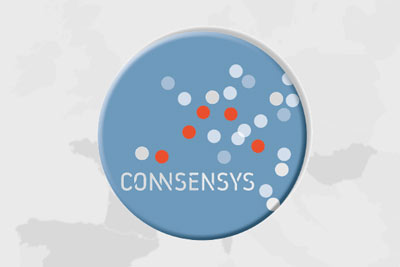
2018-2020 Connsensys – COSME, COS-2017-3-02, European Strategic Cluster Partnership for smart specialisation investments
The overall objective of our project is to set up a platform, with a joint cluster partnership strategy, implementation roadmap and interregional investment projects, between food- and electronic/ICT cluster organisations and relevant research and technology organizations, to lower the barriers for food companies to access the newest smart sensor systems, to enable the Internet of Things (IoT) transition of the food industry.
Project Coordinator: Veerle Rijckaert, Business development & internationalization manager; Veerle De Graef, Innovation manager and Gus Verhaeghe, Innovation manager - Flanders' Food (BELGIUM)

SweetVeg
2016-2019 SweetVeg - EUREKA_15: Improving yield of sweet corn & tomato and their compliance to food manufacturers’ requirements using by precision agriculture application (Project ID: EUREKA_15-1-2016-0034)
SweetVeg aims to develop a solution for improving the yield, quality and compliance to food manufacturers’ requirements of sweet corn and tomato through optimisation of the nutrient uptake, irrigation, yield, harvesting time measured by sensors. Sweet corn and tomatoes are two of the most important vegetable crops for the freezing and canning industry.
Website: www.sweetveg.eu
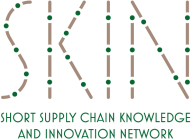
SKIN
2016-2019 - H2020-RUR-2016-2017 SKIN (Short supply chain Knowledge and Innovation Network)
SKIN is an ambitious initiative of 20 partners in 14 countries in the area of Short Food Supply Chains (SFSCs). It intends to systematise and bring knowledge to practitioners, promote collaboration within a demand-driven innovation logic and provide inputs to policymaking through links to the EIP-AGRI.
Website: www.shortfoodchain.eu
I-CON
2016-2019 I-CON: Improving COmpetences and skills through Food sector InNovations, Interreg CENTRAL EUROPE
Main problem is related to innovation capacity in remote areas. In SI, HU, PL & SK those areas are facing declining employment opportunities in traditional industries as a result of structural change. This emphasizes the need to take steps to stimulate economic activity with employment generating potential for regions are facing difficulties in maintaining a critical mass of facilities to support economic development. Analysis show that FOOD SECTOR together with other value chain related sectors represent one of the most important, potential field to leverage improvement of socio-economic situation in remote areas.
Website: www.interreg-central.eu

PATHWAY-27
Pivotal assessment of the effects of bioactives on health and wellbeing from human genoma to food industry - pathway.
Website: https://www.pathway27.eu

NutriSEA
Network of universities and enterprises for food training in Southeast Asia, ERASMUS + Programme (Project reference number 561945-EP-1-2015-1-BE-EPPKA2-CBHE-JP)
The aim is to build HR capacity to ensure a sustainable food value chain model based on entrepreneurship and creating added value to the natural resources supporting food production in Southeast Asia (Vietnam, Cambodia and Myanmar). Furthermore the project aims to enhance university-enterprise cooperation as well as regional and (inter)national cooperation and networking.

FOODLAB
2015-2017 -2014 - EAC/S11/13 - Erasmus+ - FOODLAB
The Foodlab project will create a European incubator for both innovative projects and the creation of food companies. Foodlab aims to develop innovation, particularly at start‐up and SME levels. It will facilitate the transfer of innovative projects by preparing: The company personnel to understand the challenges of innovation; Teachers / researchers to better understand all the industrial constraints; Students to understand and rationalize the difficulties of getting new products onto the market and develop their entrepreneurial spirit.
Website: http://foodlab.eu.com/
FInish
2014-2016 Flnish, EU FP7, CP-CSA, FI-ICT-2013.1.8
Food intelligence and information sharing for business collaboration enabled by the Future internet.
Website: http://www.finish-project.eu/
SUSCLEAN
2012-2015 SUSCLEAN, EU FP7, collaborative project Nr. 287514
SUSCLEAN will contribute to the development and implementation of a new generation of environment-friendly equipment sanitation and food product decontamination technologies ensuring food safety. SUSCLEAN is focused on minimally-processed vegetables (MPV) i.e. vegetables physically altered from their original form by slicing and cutting but remaining in a fresh state.
Website: http://susclean.eu/
CoolSAVE
2012-2014 CoolSAVE, EU FP7, IEE contract Nr. IEE/11/003/SI2.615920
Development and dissemination of cost effective strategies to improve energy efficiency in cooling systems in the food and drink sector.
FoodManufuture
2012-2014 FoodManufuture, EU FP7, CSA project Nr. 289327
Conceptual Design of a Food Manufacturing Research Infrastructure to boost up innovation in Food Industry, Theme “Food Factory of the Future – Design Study” (KBBE.2011.2.3-02).
Website: http://www.foodmanufuture.eu/
SmartAgriFood
2011-2013 SmartAgriFood, EU FP7, collaborative project, project Nr. 285326
Smart Food and Agribusiness: Future Internet for Safe and Healthy Food from Farm to Fork.
Website: http://www.smartagrifood.eu/
CAPINFOOD
2011-2014 CAPINFOOD-South-East Europe - Transnational Cooperation Programme, project Nr. SEE/B/0027/1.3/X
Improving the enabling environment and public awareness for innovation in the South-East European food sector through transnational collaboration.
Website: http://www.capinfood.eu/
EcoBioCAP
2011-2015 EcoBioCAP, EU FP7, collaborative project, project Nr. 265669
Ecoefficient Biodegradable Composite Advanced Packaging
Website: http://www.ecobiocap.eu/
SALSA
2011-2014 SALSA, EU FP7, Collaborative project-Latin-America-, project Nr. 265927
Knowledge-based Sustainable vAlue-added food chains: innovative tooLs for monitoring ethical, environmental and Socio-economical impActs and implementing EU-Latin America shared strategies.
Website: http://www.salsaproject.eu
SALUS-SALUX
2011-2014 SALUS, EU FP7, project Nr. 2010-12-10
SALUS - a European network to follow-up the reformulation of manufactured foods in terms of the reduction of the levels of fat, saturated and trans fat, salt and sugar. Identification and exchange of good practices on the technical and economical aspects of reformulations are in small and medium sized enterprises.
Website: http://www.salux-project.eu
DREAM
2009-2013 DREAM, EU FP7, Large-scale integrating collaborative project, project Nr. 222654-2
DREAM is a trans-disciplinary partnership involving two multinationals and nine countries, which will develop realistic, physical and mathematical, food models for use as standards to be exploited across all major food categories to facilitate development of common approaches to risk/benefit assessment and nutritional quality in food research and industry.
AgriFoodResults
2009-2011 AgriFoodResults, EU FP7, CSA - Support Action, project Nr. 226927
European initiative for a better use of the results of agri-food research.
IMSFood
2009-2011 IMSFood - Innovative Management System for a Sustainable Food Industry, ERA-NET, Cornet 7th Call
The objective of the project is to develop particularly applicable, efficiency increasing and cost reduction techniques, which adjusted to specific conditions, facilities and resources of the SMEs working in the food chain.
NAMASTE
2010-2013 NAMASTE, EU FP7, Collaborative project-India-, project Nr. 245267
New Advances in the integrated Management of food processing waste in India and Europe: use of Sustainable Technologies for the Exploitation of by-products into new foods and feeds.
TRANSPARENT FOOD
2009-2011 Transparent_Food, EU FP7, CSA, project Nr. 245003
Quality and integrity in food: a challenge for chain communication and research.
PRO PRALINE
2008-2011 ProPraline, EU FP7
Research for the benefit of specific groups. Research for SME associations/groupings, project Nr. 218423. Structure and processing for high quality of chocolate pralines.
WINDAIR
2008-2010 WINDAIR, EU LLP LdV project, project Nr. LLP LdV 2008 T01 2008 FR-117-011
Transfer of modular courses on the quality of food production for small and medium sized food companies HACCP-hygiene/traceability - Food safety in Hungary and Romania.
TRUEFOOD
2006-2010 TRUEFOOD (TRaditional United Europe FOOD), EU FP 6, Integrated project. Contract Nr. FOOD-CT-2006-016264
Improvement of the quality, safety and marketability of traditional foods by innovative methods, including consumer studies, chemical and microbiological risk assessment, and aspects of sustainable food production. Technology transfer for SME’s.
INPLISTA
2007-2009 INPLISTA, EU FP6, SSA project, project Nr. 518696
EU-funded project aimed at providing information about food quality and safety standards for EU-based small and medium sized enterprises.
HELENA
2005-2008 HELENA EU FP6, Specific Targeted Research Innovation Project. Contact Nr. FOOD-CT-2005-007034
Investigation of the nutrition attitudes of adolescents. HELENA will provide data about attitudes towards nutrition, and the main determinants of food choice and preference, among male and female European adolescents. Development of food products with positive health effects for adolescents and sensory characteristics that is attractive to adolescents.
SMEs-Net
2005-2006 SMEs-Net, EU FP6, EU SSA project
Campden BRI Magyarország Nonprofit Kft took part as a technical partner of the Federation of Hungarian Food Industries in carrying out a survey about R&D needs of food SMEs and the barriers to their involvement in innovation.
Other programmes:
2018 - EFFAT and FoodDrinkEurope project, VP/2017/001/0004
Campden BRI Hungary takes part in a project that deals with new professions and career paths in the food and drink industry and aims at delivering high-level food industry skills in the digital economy.
2018 - Campden BRI Hungary became an EIT FOOD Hub
2018 UNIDO, Belarus, Project No. 3000058398
The scope of the project is follow-up of the project 2017 is to perform on-site factory inspections and assess the implementation of HACCP based QM systems (ISO 220000) in the pilot enterprises in Grodno region.
2017 UNIDO, China, Project No: PO 3000052222
Food Safety Supervision Capacity Building for China. It is the follow-up of the trainings held in 2016. Two additional training were held for the dairy sector in Shaanxi and Jiangsu provinces.
2016 - UNIDO China, Project No 140272, contract No: 3000036938
Food Safety Supervision Capacity Building for China. Train of trainers and pilot workshops on HACCP, food safety were held in Beijing and two different province in China. Textbooks on food safety and regulation and food safety specially for dairy sector were developed.
2017 - UNIDO, Belarus, Project No: 130243, contract No: 3000045962
Introduction of HACCP based QM systems in a number of selected enterprises in Grodno, Belarus. HACCP awareness seminars were held in Grodno Oblast, Belarus.
1999-2007 UNIDO funded projects were carried out in Romania, Ukraine, Serbia, Croatia, Macedonia and Eritrea to promote the application of food safety and quality management systems.
2000-2001 PHARE Programme HU-9806-04-02
For restructuring measures and investment appraisal related to EU accession and increasing competitiveness of the processing of agricultural products. Campden BRI Magyarország Nonprofit Kft was a member of the winning consortium, and leader of the subproject for fruit and vegetable processing. On behalf of the Ministry of Agriculture and Rural Development (MARD, Hungary) was carried out.
2000-2002 CIAA Phare Business Support Programme (BSP-1) 00-007700
To strengthen the activities of the Food and Drink Industry Federations by helping CEEC companies. 7 sector-specific GHP codes have been developed for Hungary under the leadership of Campden BRI Magyarország Nonprofit Kft, in close collaboration with the CIAA and the Federation of Hungarian Food Industries (ÉFOSZ). A frozen food code was developed in English in discussion with Czech and Polish Federations. Seminars and training were also provided in Hungary, Poland and the Czech Republic.
2003-2004 CIAA Phare Business Support Programme (EU) (BSP-2) contract Nr. 202/031.567 led by the Confederation of the Food and Drink Industries of the EU (CIAA)
Training and expert assistance for the food federations of ten new EU accession countries in upgrading the level of implementation of Good Hygiene Practice. Campden BRI Magyarország Nonprofit Kft is a collaborating partner in this programme.
2004 SAPARD programme (EU)
A review of the current status and analysis of the needs for EU and government support was carried out in several branches of the food and drink industry (including canning, freezing, fruit juice, flour milling, confectionery, pasta manufacturing, soft drink and mineral water etc.). Aspects of hygiene, technical level, product range and technical support were considered, and used for the development of the country’s food industry strategy.
2008-2009 CIAA Phare Business Support Programme (BSP-3)
Technical Assistance was held in seminars on Food Safety and Labelling, Nutritional Claims in Bulgaria, Romania and Turkey.
Campden BRI Magyarország Nonprofit Kft is represented within the
- Scientific Advisory Board of the Hungarian Food Safety Office
- Food Safety Committee of the Federation of Hungarian Food Industries
- Food Research and Science and Food Hygiene Expert groups of the CIAA on behalf of the Federation of the Hungarian Food Industries
- European Sensory Network (ESN)
PRAQ III. Programme
Expert advice was provided for different sectors using UK experts.


